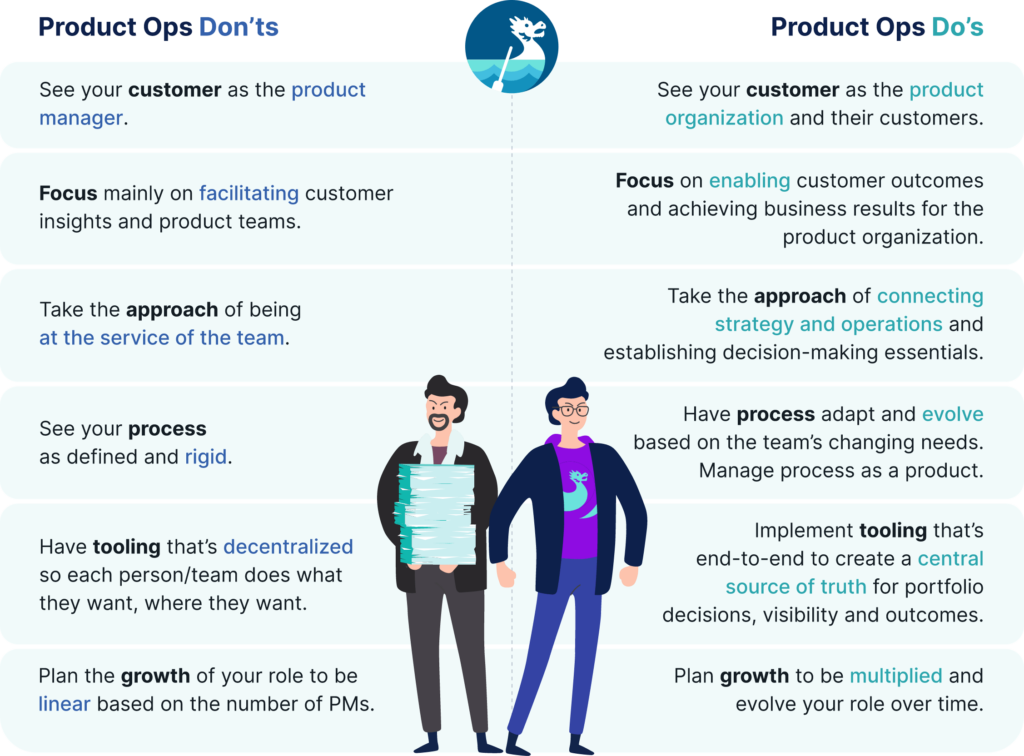Product Operations: Driving Efficiency and Impact in Product Organizations
Product Operations, or Product Ops, is an increasingly vital role in modern software organizations, designed to ensure that product teams operate efficiently and effectively. The primary goal of Product Ops is to enable an outcome-focused product organization that can deliver exceptional results, both in the short term and in the long term, by driving the best possible portfolio outcomes. As companies strive to build scalable, product-led operations, Product Ops helps streamline processes and align teams with the overall strategic vision.
While the title of “Product Operations” is relatively new, the function itself has long existed under different titles. Previously, responsibilities for operationalizing product strategy and ensuring smooth execution were often handled by Portfolio Managers, Program Managers, or even the Chief of Staff to the CPO. As the role has evolved, Product Ops has emerged as a distinct function that is integral to product success in growing organizations.
The Role of Product Operations
Product Operations professionals typically act as the right hand to the Chief Product Officer (CPO). They work closely with CPOs and other product leaders to help translate the company’s high-level strategy into actionable plans that can be executed by product teams. By establishing clear processes and frameworks, Product Ops helps ensure that product teams can focus on execution and delivery without being bogged down by administrative hurdles.
The responsibilities of Product Ops often include coordinating cross-functional collaboration, optimizing workflows, managing product data and tools, and ensuring that teams are equipped to meet both short-term goals and long-term strategic objectives. Product Ops professionals are key in shaping the efficiency of the product organization and ensuring that product initiatives deliver the maximum value to the business.
Starting product ops or growing it? Get the product ops playbook to learn the best practices from companies like PayPal, Miro, and Shutterfly.
The Benefits of Product Operations
When implemented effectively, Product Ops can bring several key benefits to a product-driven organization, including:
- Clarity on Strategy Across All Levels: Product Ops ensures that the company’s product strategy is understood and aligned across all levels of the organization, from senior leadership to individual contributors. This clarity enables product teams to prioritize initiatives that directly align with the company’s goals.
- Responsive Execution That Delivers Commitments: Product Ops helps create a framework that ensures product teams can execute quickly and efficiently, delivering on commitments while adapting to changing circumstances and priorities. This ensures that products are brought to market on time and meet customer expectations.
- Ability to Scale Without Chaos: As companies grow, maintaining order and clarity can become challenging. Product Ops enables teams to scale effectively by standardizing processes, improving communication, and setting up systems that allow the product organization to grow without creating business-damaging chaos.
- Adoption of Data-Informed Decision Making: One of the key aspects of Product Ops is ensuring that decisions are made based on accurate, timely data. By facilitating access to key metrics and insights, Product Ops helps teams make informed decisions that drive better product outcomes.
- Balance of Long-Term Vision and Short-Term Outcomes: Product Ops ensures that product teams can balance long-term strategic vision with the need for immediate results. By managing day-to-day operations while keeping an eye on the bigger picture, Product Ops helps organizations navigate both current and future market needs.
Why Product Operations Matters
In fast-growing software organizations, especially those that rely heavily on product development to drive business growth, Product Ops has become a key player in ensuring that teams operate smoothly and align with company strategy. This role is especially crucial in product-led organizations, where the success of the business is largely driven by the product itself. Without effective Product Ops, organizations can experience misalignment, inefficiency, and stagnation in product development, leading to missed opportunities and delayed releases.
For Chief Product Officers and Product Leaders, Product Ops provides the tools and structures needed to ensure that product teams are well-supported, focused on high-priority tasks, and empowered to make the best decisions based on available data. By removing friction in product development processes and aligning resources to strategic goals, Product Ops helps companies maintain their competitive edge and scale without compromising on product quality.
The Evolution of the Product Operations Role
Although the Product Ops title has only recently gained prominence, the functions and responsibilities associated with the role have existed in various forms for many years. As product management has evolved into a more data-driven and cross-functional discipline, the need for specialized operational support has grown. Portfolio Managers, Program Managers, and Chief of Staff to the CPO used to handle many of the tasks now associated with Product Ops. However, as product organizations have become more complex and agile, the need for a dedicated role that can focus on streamlining operations, improving execution, and driving data-driven decision-making has grown significantly.
As the role continues to mature, Product Ops will likely continue to evolve. Whether managing tools and systems, aligning teams with business objectives, or ensuring that products are delivered on time and on budget, Product Ops is increasingly seen as a key enabler of successful product organizations.

Conclusion
In summary, Product Operations is a crucial function that supports the success of product organizations by ensuring operational efficiency, strategic alignment, and data-informed decision-making. By enabling responsive execution and helping companies scale without chaos, Product Ops empowers Chief Product Officers and product teams to focus on what matters most: delivering value to customers and driving business growth.
To learn more about the evolving role of Product Operations, including key responsibilities and best practices, check out our Product Operations 101 blog.